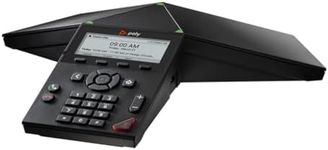Buying Guide for the Best Wifi Voip Phone
When choosing a WiFi VoIP phone, it's important to consider several key specifications to ensure you get a device that meets your needs. VoIP (Voice over Internet Protocol) phones use the internet to make calls, and WiFi VoIP phones specifically connect to wireless networks. This makes them highly versatile and convenient, especially in environments where mobility is important. Here are the key specs you should consider and how to navigate them to find the best fit for you.WiFi StandardsWiFi standards determine the speed and range of your wireless connection. The most common standards are 802.11n, 802.11ac, and 802.11ax. 802.11n is older and offers decent speed and range, suitable for basic use. 802.11ac provides faster speeds and better performance in crowded networks, making it a good choice for most users. 802.11ax, also known as WiFi 6, offers the best performance, with higher speeds and improved efficiency in dense environments. Choose a phone that supports at least 802.11ac for a good balance of performance and future-proofing.
Battery LifeBattery life is crucial for a WiFi VoIP phone, especially if you need to use it throughout the day without frequent recharging. Battery life can range from a few hours to several days on standby. For light use, a phone with a battery life of 6-8 hours may be sufficient. For more intensive use, look for a phone with at least 10-12 hours of talk time. Consider your usage patterns and choose a phone that can comfortably last through your typical day.
Audio QualityAudio quality is essential for clear communication. Look for phones that support HD voice or wideband audio, which provide better sound quality compared to standard narrowband audio. This is especially important if you frequently make calls in noisy environments. Additionally, consider phones with noise-canceling microphones and good speaker quality to ensure you can hear and be heard clearly.
DisplayThe display on a WiFi VoIP phone can range from simple monochrome screens to full-color touchscreens. A larger, high-resolution display can make it easier to navigate menus, view contacts, and read messages. If you need to access detailed information or use advanced features, a color touchscreen may be beneficial. For basic calling needs, a simpler display may suffice. Consider how you will use the phone and choose a display that meets your needs.
Connectivity OptionsIn addition to WiFi, some VoIP phones offer additional connectivity options such as Bluetooth, Ethernet, or USB ports. Bluetooth can be useful for connecting wireless headsets or other peripherals. Ethernet ports can provide a reliable wired connection as a backup to WiFi. USB ports can be used for charging or connecting to a computer. Think about your specific needs and whether these additional connectivity options would be beneficial for you.
Security FeaturesSecurity is important for protecting your communications and data. Look for phones that support encryption protocols such as TLS and SRTP, which help secure your calls and prevent eavesdropping. Some phones also offer features like VPN support and secure boot to enhance security. If you handle sensitive information or need to ensure privacy, prioritize phones with robust security features.
User Interface and UsabilityA user-friendly interface can make a big difference in your experience with a WiFi VoIP phone. Look for phones with intuitive menus, easy-to-use buttons, and customizable settings. If possible, try out the phone's interface before purchasing to ensure it meets your preferences. Consider how easy it is to access frequently used features and whether the phone offers any shortcuts or programmable keys to streamline your workflow.
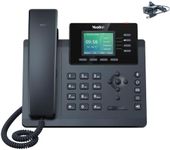
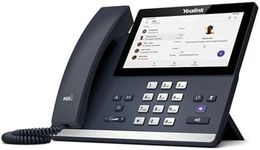


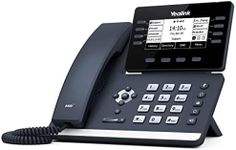

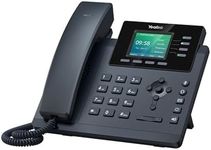

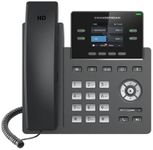


![Cisco 8865 3PCC IP Phone Wi-Fi Bluetooth 5” high-Res (800×480) WVGA Color LCD SIP Desktop Wall Mountable IP Phone [PN: CP-8865-3PCC-K9]](https://images-proxy.bestreviews.guide/FJdeH8FNjismjOB3ILh_fUFEY0g=/0x150/https://m.media-amazon.com/images/I/41o2IzEW3vL._AC_CX679_.jpg)

